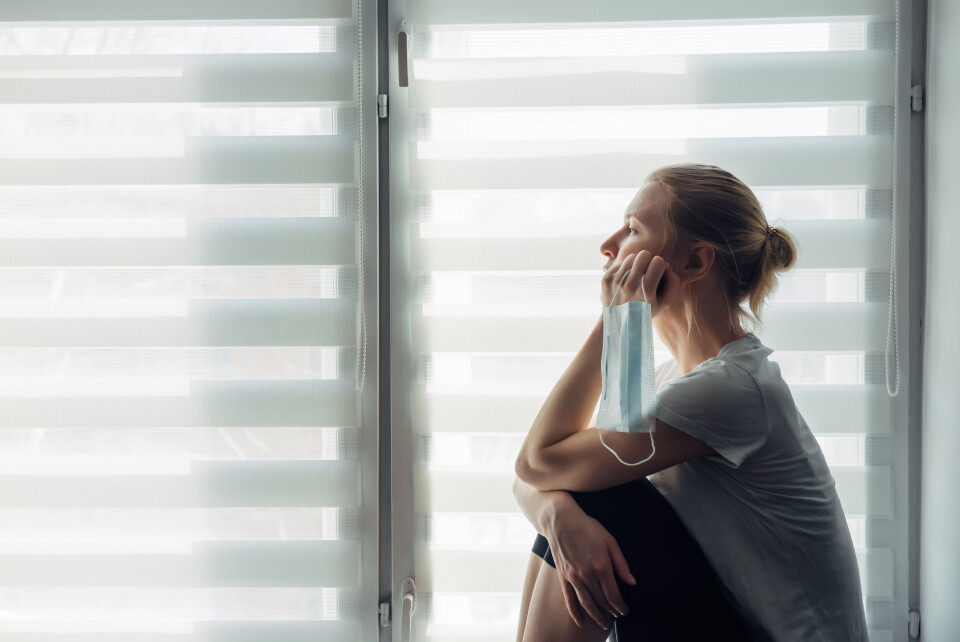-
La Voie Bleue: European Cycle Route of the Year is in France
700km bike path linking Luxembourg and Lyon has been crowned winner of the 2026 title
-
MAP: See how your location in France affects online food shop prices
New analysis shows how your shop compares on average
-
Further sightings of processionary caterpillars in France prompt action from local authorities
Caterpillars have arrived early after mild winter
Why France is easing its Covid isolation and contact case rules
Reasons given include creating a balance between economics and health, promising data on Omicron and other countries’ lead

Despite rising Covid cases across the country, from today (Monday, January 3) the government has “relaxed” its rules on self-isolation for positive and contact cases. We explain.
Health Minister Olivier Véran explained the new rules in an interview with Le Journal du Dimanche yesterday.
The rules now apply to everyone regardless of the variant detected (Delta or Omicron), and depend on whether you are fully vaccinated or not.
Read more:Recap: The seven key Covid rule changes that start in France today
The rules are as follows:
-
Fully-vaccinated (e.g. both doses and booster): Positive cases must isolate for seven days. Isolation can end after five days in case of a negative PCR or antigen test.
-
Not fully-vaccinated or vaccinated at all: Positive cases must isolate for 10 days. Isolation can end after seven days in case of a negative PCR or antigen test.
Full-vaccinated contact cases no longer need to isolate, but must ensure barrier gestures and take regular tests.
So why this change in rules?
1. To limit the disruption to society
Limiting isolation for contact cases is mainly designed to enable people to keep working and staying part of society and to balance economics and the functioning of society with health.
Newspaper Le Parisien said that otherwise, the “extreme contagion of the Omicron variant” could lead to a “disrupted society”, due to the number of people who need to stop work as they are contact cases.
In a statement, the Health Ministry said that the idea is to “take into account the extremely rapid evolution of the spread of the Omicron variant in France", and allow "a benefit-risk balance to be established to ensure the control of contamination while maintaining socio-economic life."
Previously, the rules for self-isolation varied depending on the kind of variant, and someone could have potentially been required to isolate for up to 17 days, if they lived with someone who tested positive.
2. Because the data suggests it makes sense
Initial studies from England, Scotland, and South Africa suggest that the Omicron variant is more contagious than previous variants but leads to fewer hospitalisations.
Read more: Omicron now dominant variant in France but hospitalisations ‘stable’
The early data suggest that Omicron could be between 35-80% less dangerous than Delta.
Studies also suggest that Omicron has a shorter incubation period, has a higher viral peak earlier, causes symptoms over a shorter time, and leaves the body more quickly. As a result, a shorter isolation period makes sense.
Similarly, Bruno Mégarbane, head of the intensive care unit at Lariboisière hospital, told FranceInfo that symptoms of Omicron can appear more quickly in vaccinated people because the immune system recognises the virus and reacts more quickly when it appears.
3. To allow healthcare to continue
Special rules for healthcare workers have been laid out by health authority le Haut Conseil de la santé publique, to enable workers to continue working under certain conditions, even if they have Covid, if they have no symptoms, Mr Véran said.
The minister said that because almost all healthcare workers are vaccinated, “it is a question of allowing continuity of care” given the pressure on healthcare facilities, and will avoid the unnecessary closure of much-needed hospital beds.
Professor Mégarbane said: “There is always a risk, but it is a strategy of minimal risk.”
4. Because other countries have done the same
France is not the only country to reduce isolation times in recent weeks.
Switzerland has enabled cantons to reduce contact case isolation to seven days, compared to 10 before. It also now only applies to people in the same household or with close contact with a positive case.
Spain has also decided to reduce quarantine for positive cases to seven days, to find a balance between “public health and economic growth”, Spanish Prime Minister Pedro Sanchez said.
Portugal and Argentina have done the same.
The US has also reduced its recommended isolation time from 10 days to five for positive cases, as long as they are asymptomatic.
Related articles
Covid France: New rules for testing positive and contact cases
Do Americans (or other nationalities) need boosters to visit France?
The good, bad and the ugly: Institut Pasteur’s scenarios for Omicron
























